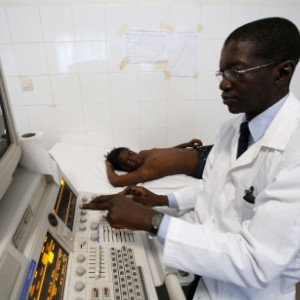Using AI to control energy for indoor agriculture
30 September 2024
Published online 10 September 2023
As cardiovascular disease rates rises, population specific trials are needed

Today, Africa is a major contributor in the global burden of cardiovascular diseases, representing 5.4% of cardiovascular deaths globally.
Clinical studies
Despite the plethora of treatments available for heart diseases, more research is needed to improve their efficacy and develop new ones. This can only be achieved through clinical trials, to determine the best use of the treatments and ascertain evidence of their safety and efficacy. Yet, Africa, home to 1.4 billion people, accounts for only 2% of clinical trials in cardiology, according to a study in Circulation: Cardiovascular Quality and Outcomes.
The study highlights the huge discrepancy between Africa’s share in the global burden of cardiovascular diseases and its meagre share of clinical trials in cardiology.
“We conducted a comprehensive review of cardiology clinical studies that were yielded by African countries over the course of three decades, to measure the efficacy of drugs and surgical interventions for heart disease patients,” said Samir Kapadia, head of the department of cardiovascular diseases at Cleveland Hospital in the United States, and principal investigator in the study.
Three decades
Kapadia’s team reviewed all clinical studies in cardiology conducted by Africa’s 54 nations from 1990 to 2019, using Pubmed’s database to pinpoint the number of cardiology clinical trials conducted by each country.
They found 179 clinical trials in cardiology were conducted by African countries from 1990 to 2019, accounting for only 2% of the total during that period.
The study’s lead author, Abdul Rahman Abu Shouk, a researcher at Cleveland Clinic’s Hospital and Harvard University’s Faculty of Medicine, told Nature Middle east: “It is vital to address the problem of the lack of African participation in clinical trials; for western clinical trial results do not necessarily hold true for African populations.”
Nasser Taha, a professor of cardiology at the University of Al-Menia in Egypt, said: “Despite Africa’s modest share of participants in clinical trials conducted in collaboration with various research centres, the findings of such trials are generalized for all the populations in the continent. That stresses the need for large scale trials conducted exclusively for Africans.”
Egypt at the forefront
The study uncovered wide disparities in the shares of African countries in trials; with 147 of such trials (82%) conducted only in Egypt (60 trials), South Africa (55), and Nigeria (32). Moreover, 37 countries (68% of African countries) held no clinical trials throughout the period studied. South African papers had the highest impact factor score in the region, followed by those of Egypt and Nigeria.
Abu Shouk said the most prominent obstacles were a lack of patients and medical research centres registering for trials, and gaps in the regulatory framework governing clinical trials. The team also found few clinical collaborations between African countries, and those in Europe and the Americas. Moreover, only 35.7% of trials were financed by governmental institutions, pharmaceutical companies, or non-profit organization.
The team noted that the number of clinical trials rose between 2010 and 2019, providing hope that the gap may be reducing.
Ahmed Bendary, study co-author, and assistant professor of cardiovascular diseases at Benha University’s Faculty of Medicine said that the results underscore the urgent need to step up financing and support of research in Africa.
Mahmoud Hassanen, professor of cardiology at Alexandria University’s Faculty of Medicine, in Egypt, said bureaucracy is another major impediment. For example, participation in clinical trials in Egypt requires approvals from many regulatory entities and may take many months, not to mention the small number of medical research excellence centers in the region. Overcoming this requires shifting from paper data systems to digital ones to facilitate extraction of data, statistics and mining for results.
Bendary said that initiatives such as the Pan African Trials Registry for improving the framework for research and collaborations could have an impact. He also underscored the importance of a multi-faceted approach, including proper regulatory frameworks, digitalization of medical records, open access publishing, collaborations with research institutions, cooperation between African and Western countries, as well as partnering with high-quality journals in cardiology. This will boost the continent’s expertise in research design.
Abu shouk highlighted the need for more physicians in African clinical trials. He added that Africa has only 2,000 cardiovascular disease physicians.
To read this article in French please visit Nature Africa: https://doi.org/10.1038/d44148-023-00238-5
doi:10.1038/nmiddleeast.2023.159
Stay connected: